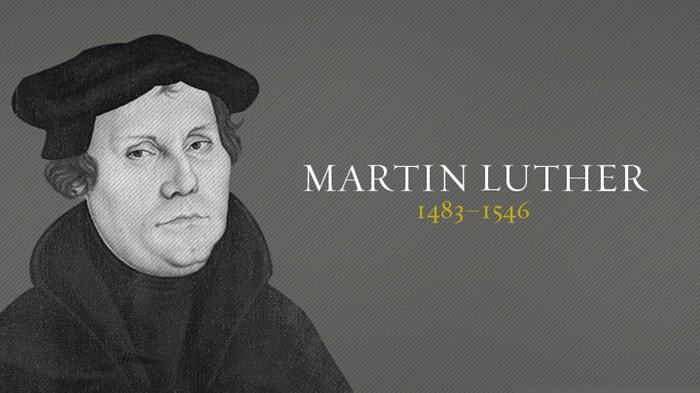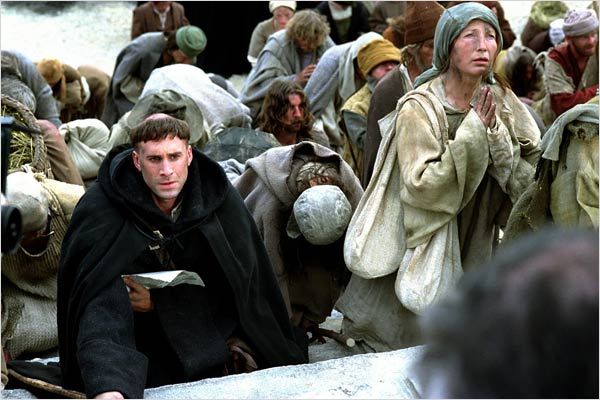
This year, Protestants
around the world celebrate the 500th anniversary of the Reformation. On Truth for Today, we have already looked
back on the influence of John Wycliffe, “The Morning Star” of the Reformation
(click here) and John Huss (click here). Now we will begin a series on one of
the Reformation’s greatest heroes.
In July 1505, a troubled
young man walked through a field in Germany. He was caught in a terrible thunderstorm
and electricity danced across the sky. A lightning bolt struck a nearby tree,
and instantly he took it as a sign from God. “Help me, St. Anne and I will
become a monk!” And so it was, partly to fulfill his vow, and partly to assuage
his own personal turmoil, that Martin Luther entered the Augustinian monastery
in Erfurt.
However, life inside the monastery
did not ease Luther’s growing despair. The more he plunged himself into
religious devotion, the more depressed, guilty and empty he felt. As C.S. Lewis
once remarked, “No man knows how bad he is till he has tried very hard to be
good.” Luther later wrote that he suffered from anfechutungen, a German word interpreted as “guilt, fear and
isolation from God.” Luther confessed:
“When I was a
monk I depended on such willing and exertion, but the longer [I worked at it]
the further away I got . . . I was very pious in the monastery, yet I was sad
because I thought God was not gracious to me . . . When I had prayed and said
my mass I was very presumptuous. I didn’t see the scoundrel behind it all
because I didn’t put my trust in God but in my own righteousness . . . the most
pious monk is the worst scoundrel . . . I was a good monk and kept my rule so
strictly that I could say if ever a monk could get into heaven through monastic
discipline, I was that monk . . . And yet my conscience would not give me that
certainty, but I always doubted and said, “You didn’t do that right. You weren’t contrite enough. You left that
out of your confession. Although I lived a blameless life as a monk, I felt
that I was a sinner with an uneasy conscience before God. I could also not
believe that I had pleased him with my works. Far from loving that righteous
God who punished sinners, I actually hated him. If I had kept on any longer, I
should have killed myself with vigils, prayers, mass and other work.”[1]

In 1510 Luther made a pilgrimage to Rome
hoping that an experience among the relics, holy shrines, and monuments of the
saints would help him secure salvation. Luther made his way to a building
called the Lateran, where there was a series of ancient stairs called the Scala Santa that had been transported
from Jerusalem to Rome. Supposedly, Jesus had walked on those stairs outside
Pilate’s hall. The Catholic Church taught that if you got on your hands and
knees and crawled up the twenty-eight stone stairs, and said prayer on each one
of the stairs, by the time you got to the top stair you could reduce your time
in purgatory. Thousands of pilgrims would come and climb those stairs on their
hands and knees. Martin Luther—now deeply troubled—got on his hands and knees
and crawled up those stairs, kissing each one as he crawled and saying “the
Lord’s Prayer” in Latin along the way. When he got to the top he looked back at
the stairway and asked himself a question, “What if it is not so?”[2]

God used that experience in Luther’s life to
help him see the utter futility and bankruptcy of the Catholic religion. The
turning point came in 1515 when Luther was allowed to teach the Bible at the university
in Wittenberg. It was then that he began reading the Scriptures as never
before. The single verse that changed his life was, “the just shall live by
faith” written by Paul some 1,500 years earlier, found in Gal. 3:11 and Rom
1:17.
Luther pondered day and night the connection
between the righteousness of God and the justice of God, and the statement, “the
just shall live by faith.” Then the light dawned and to Luther it felt as if he
had “been reborn and had gone through open gates into paradise.” Luther
realized that we are not saved by works, but by placing our faith solely in the
sacrifice of Christ. By doing so, God will declare a sinner righteous because
of Jesus’ atoning death. Jesus takes the sinners’ guilt and punishment, while
the sinner receives Jesus’ perfect, sinless record. In other words, Luther felt
God’s amazing grace and forgiveness for the first time.
According to some accounts, when Luther came
to Christ he stepped out of his cell and made his way through the cloistered halls
of the monastery and up the stairs to the belfry. He pulled the rope connected
to the bells and rang the chimes in the middle of the night, as if to say to
the world, “The just shall live by faith! The just shall live by faith!”[3] -DM
No comments:
Post a Comment